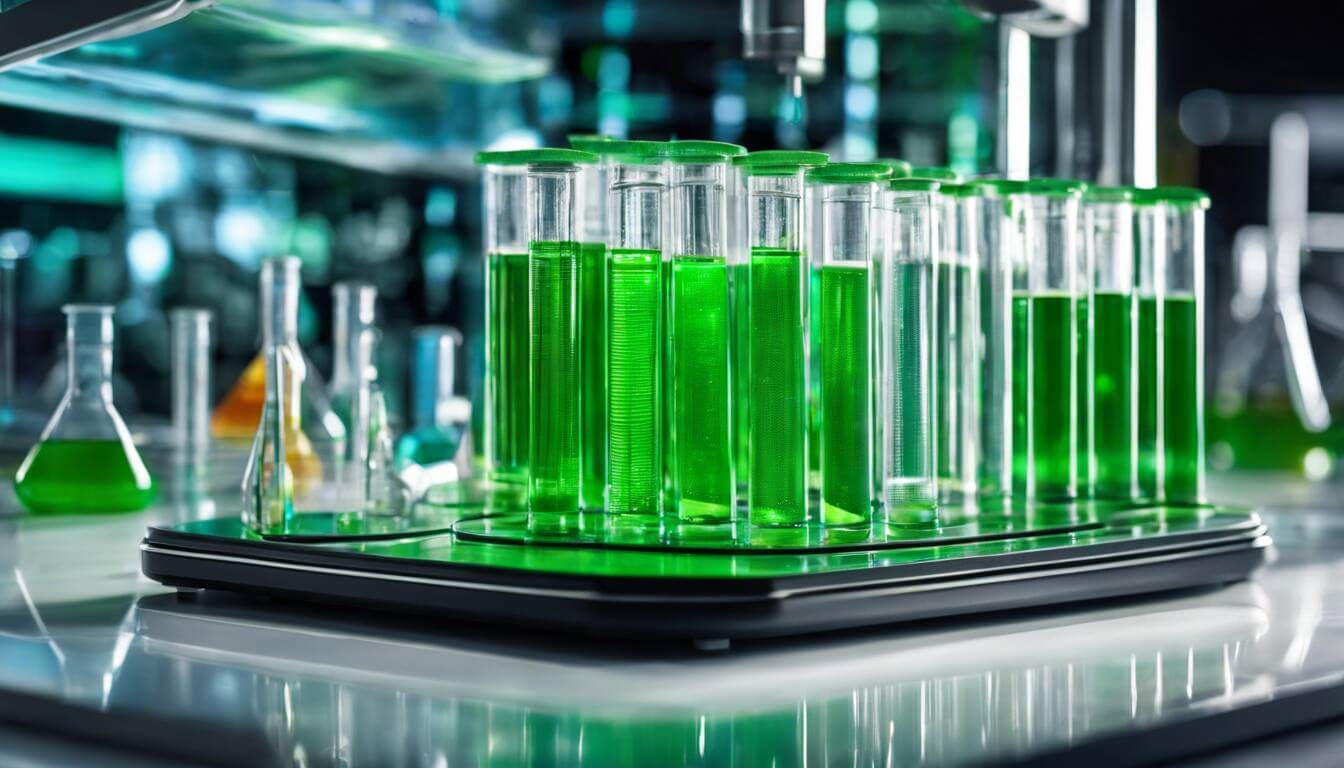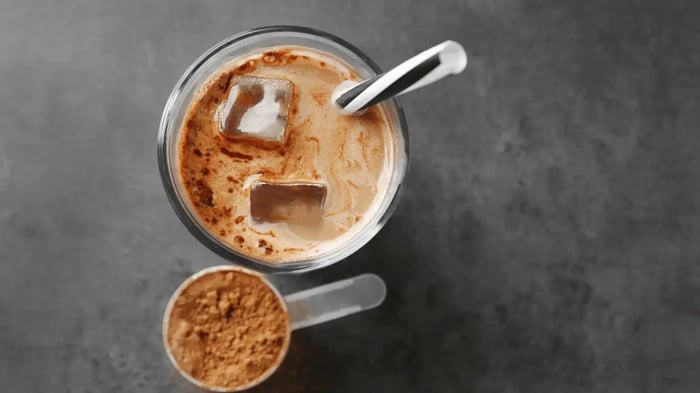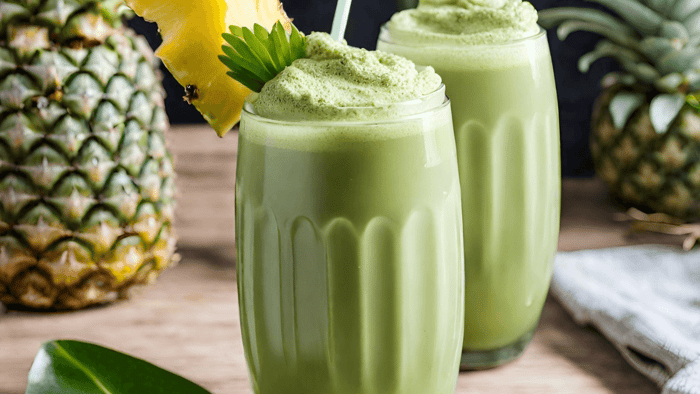When it comes to energy drinks and gut health, energy drinks can take a toll on gut health due to their high caffeine and sugar content. The acidic nature of caffeine has potential repercussions such as thinning of the stomach and intestinal lining while high sugar disrupts the harmony amongst healthy gut bacteria, leading to issues like frequent headaches and strong sugar cravings. Additionally, they might crank up the heart rate and blood pressure with possible implications for those dealing with heart issues or hypertension. So next time you feel like grabbing that energy drink, remember your gut might not be as thrilled.
Energy drinks, due to their high caffeine and sugar content, can potentially disrupt gut health by affecting the balance of good bacteria in the digestive system. It's important to consume energy drinks in moderation and consider healthier alternatives for sustained energy, such as natural caffeine sources like green tea or snacks rich in prebiotics and nutrients.
Make Amazing Drinks With The Elixer Mixer
The Impact of Energy Drinks on Gut Health: Harmful Effects
When reaching for an energy drink in the afternoon slump, the intended quick boost might come at a cost to our gut health. Energy drinks, with their high caffeine content, have the potential to disrupt the delicate balance of our stomach and intestinal lining. Over time, this could lead to "leaky gut syndrome"—a condition where the lining of the intestines becomes porous, allowing harmful substances to enter the bloodstream.
This increased permeability can usher in a range of potential issues such as inflammation, food sensitivities, and an overworked immune system. High levels of caffeine have been shown to stimulate the production of stress hormones and can lead to indigestion. Moreover, caffeine acts as a diuretic, causing dehydration and increased peristalsis—both detrimental to gut health.
The acidic nature of caffeine found in coffee, tea, soda, and energy drinks can contribute to thinning the lining of the stomach and intestines over time. This gradual erosion can significantly exacerbate various gastrointestinal problems caused by unhealthy lifestyle habits. For instance, when caffeine consumption is combined with an imbalanced diet high in processed sugars from junk foods and sugary drinks, it creates a perfect storm for unhealthy gut bacteria balance, potentially leading to symptoms like brain fog, headaches, and intense sugar cravings—an unwelcome trio affecting overall well-being.
Moreover, some energy drinks contain excessive levels of artificial sweeteners that have been found to negatively impact gut microbiota diversity and overall gut health. Aspartame, frequently used as a sugar substitute in "sugar-free" processed foods and beverages, has been known to confuse our brain's natural satiety signals and increase sugar cravings—another potential blow to maintaining healthy gut function.
"It's clear that regular consumption of energy drinks with high amounts of caffeine and sugar poses significant risks to our gut health."
Understanding the harmful effects of these ingredients in energy drinks provides valuable insights into making informed decisions about beverage choices for a healthier digestive system.
Potential Impact on Heart Rate and Blood Pressure
Energy drinks are known for their high caffeine content, which can significantly affect heart rate and blood pressure. Consuming a lot of caffeine can speed up the heart rate and increase blood pressure, particularly concerning for individuals with underlying heart conditions or hypertension.
Caffeine is a stimulant that activates the nervous system, leading to an increase in adrenaline release. This results in a faster heartbeat and constricted blood vessels, causing a temporary rise in blood pressure. While this response is natural after consuming any caffeinated beverage, the excessive caffeine in energy drinks can lead to a more pronounced effect on heart rate and blood pressure.
For those with existing heart conditions or hypertension, this sudden increase in heart rate and blood pressure could pose serious health risks. Consistent and excessive energy drink consumption may worsen these issues, potentially leading to long-term health implications.
Consider this: if a person with underlying heart conditions regularly consumes energy drinks that cause a significant increase in heart rate and blood pressure, it could strain their cardiovascular system, contributing to the development or exacerbation of cardiovascular problems.
It's not just individuals with pre-existing heart conditions who need to be cautious. Even healthy individuals are not immune to the effects of heightened heart rate and blood pressure from excessive caffeine consumption. The strain on the cardiovascular system from prolonged exposure to increased heart rate and blood pressure levels is a concern for everyone.
Understanding the potential impact on heart rate and blood pressure emphasizes the need for moderation when consuming energy drinks. It's critical to consider how these beverages may interact with individual health conditions and overall well-being.
Exploring the impact of energy drinks on heart rate and blood pressure underlines the necessity for mindful consumption. Now, let's shift our focus to uncover unexpected benefits in the relationship between energy drinks and gut health.
Energy Drinks and Gut Health: Unexpected Benefits
Energy drinks often receive criticism for their negative health impacts. However, some of the ingredients in energy drinks can surprisingly offer noteworthy benefits for gut health. Specifically, B-vitamins found in energy drinks play a crucial role in energy production, blood sugar level regulation, and serotonin/tryptophan production, indirectly contributing to better gut health.
B-Vitamins and Energy Production: B-vitamins help break down the food we eat into energy our body can use, providing essential support for our overall well-being. This efficient nutrient processing significantly impacts the gut's functionality.
Regulating Blood Sugar Levels: B-vitamins are also known to help stabilize blood sugar levels, which directly supports metabolic health and indirectly influences digestive system well-being.
Supporting Serotonin/Tryptophan Production: Serotonin, associated with happiness and well-being, is produced in the gut, with tryptophan serving as its precursor. B-vitamins aid in the synthesis of both tryptophan and serotonin, promoting healthy gut function.
These indirect contributions highlight an unforeseen aspect of energy drinks—certain components like B-vitamins can provide significant support to the gut through multiple pathways. Not all elements within energy drinks should be condemned outright. It's important to appreciate the potential positive impacts while also considering moderation and individual health conditions.
So before dismissing all aspects of energy drinks as inherently harmful, it is crucial to understand that certain ingredients like B-vitamins have properties that may offer supportive benefits for maintaining gut health—a surprising revelation amidst the commonly discussed risks associated with these beverages.
In light of these unexpected benefits, it becomes imperative to look deeper into how specific nutrients present in energy drinks might actively aid our gut health. Let's now pivot to explore the nutrients in energy drinks that play a role in supporting our digestive system.
Nutrients in Energy Drinks Aiding Gut Health
When you pick up an energy drink, you might not immediately consider its nutritional content and how that could affect your gut. But some energy drinks contain B-vitamins such as B6 and B12, which play significant roles in maintaining a healthy gut. For instance, B-vitamins help with energy production and the regulation of blood sugar levels, both crucial for keeping your gut functioning properly.
It's like giving your gut a little boost; these nutrients help the good bacteria in your gut do their job more efficiently, leading to better digestion and overall improved gut health. After all, a well-functioning digestive system is key to maintaining a healthy body.
Taurine and Its Role
Taurine is another essential component found in many energy drinks. Taurine is known for being an amino acid with potential antioxidant properties. Antioxidants are extremely helpful because they defend our cells from damage caused by harmful molecules called free radicals, contributing to overall health and potentially lowering the risk of chronic diseases.
By drinking energy drinks containing taurine, you may be providing your gut with an extra layer of protection, which can be especially beneficial when considering the daily stress we put our bodies through.
Much like taking supplements or eating foods rich in vitamins and antioxidants, consuming energy drinks with these beneficial nutrients may be a convenient way to support your gut health on the go. Of course, this does not replace a balanced diet and lifestyle but it can certainly complement them.
So, while there has been some debate about the health implications of consuming energy drinks, it's interesting to note that the nutrient content in some of these beverages may actually provide unexpected benefits for your gut health, supporting its function and overall well-being.
By staying informed about the effects of energy drinks on gut health, we can now shift our focus to explore ongoing studies that shed light on these impacts.
Current Studies on Energy Drinks and Digestive System

The intricate relationship between energy drinks and the digestive system is an area of active research. Scientists are keen on unraveling how the consumption of these beverages affects gut health and functions. Specifically, they are evaluating the influence of energy drinks on gut bacteria, the absorption of essential nutrients, and the overall performance of the digestive system.
One key aspect of these studies focuses on gut bacteria, popularly known as the gut microbiota. The gut microbiota consists of trillions of microorganisms that play a crucial role in various bodily functions, including digestion, metabolism, and immune responses. Researchers are investigating how energy drink consumption may alter the composition and diversity of the gut microbiota. Understanding these potential changes is essential for comprehending the broader impact on overall gut health.
Moreover, scientists are examining how energy drinks affect nutrient absorption within the digestive system. These beverages often contain high levels of caffeine and other stimulating compounds that could potentially influence the body's ability to absorb essential nutrients such as vitamins and minerals. Research in this area aims to illuminate the potential mechanisms through which energy drink consumption may impact nutrient uptake and utilization by the body.
For instance, recent studies have demonstrated that excessive caffeine intake can interfere with the absorption of certain minerals like calcium and iron. This finding underscores the need to explore how energy drinks, which are significant sources of caffeine, may contribute to altered nutrient absorption in the digestive system.
Furthermore, investigations are underway to assess the overall functionality of the digestive system in response to energy drink consumption. This includes examining factors such as gastrointestinal motility, enzymatic activity, and gut barrier integrity. By analyzing these parameters, researchers seek to gain insights into how energy drinks may affect the efficiency and health of the digestive process.
The ongoing scientific scrutiny surrounding energy drinks and their impact on the digestive system reflects a commitment to advancing our knowledge of their potential effects on gut health. By delving into aspects such as gut bacteria modulation, nutrient absorption dynamics, and broader digestive system functionality, these studies aim to provide a comprehensive understanding of how energy drinks intersect with gastrointestinal well-being.
With a clearer picture of how energy drinks interact with our digestive system, it's time to maneuver into exploring precautionary measures and guidelines for their consumption.
Precautions and Guidelines for Energy Drink Consumption
Energy drinks can be appealing, especially when you need a quick burst of energy. However, it's important to remember that these beverages can have significant impacts on your overall health, especially your gut health. It's crucial to consume them responsibly and be aware of their potential risks.
When it comes to energy drinks, moderation is key. Health experts often recommend limiting the intake of energy drinks to a moderate level, especially because excessive consumption can lead to adverse effects on gut health. Setting guidelines for safe consumption can aid in controlling the potential risks associated with energy drink consumption.
For instance, setting a personalized limit based on individual tolerances and sensitivities can help individuals safely enjoy the benefits of energy drinks without compromising their gut health. It's essential to recognize that everyone's body reacts differently to these beverages, and understanding one's tolerance can prevent overconsumption and its associated negative effects.
Moreover, it's imperative to be mindful of the ingredients in energy drinks. Many of these beverages contain high levels of caffeine, sugar, and other additives that can disrupt gut health when consumed in excessive amounts. Reading the labels carefully and being aware of the ingredients can help consumers make informed decisions about their consumption.
In addition to moderation and ingredient awareness, timing also plays a significant role in safe energy drink consumption. It's advisable not to consume energy drinks on an empty stomach or in combination with other stimulants like coffee or additional caffeinated beverages. Doing so can exacerbate the impact on gut health and lead to digestive discomfort.
Health professionals often suggest consuming energy drinks after a meal or alongside a balanced snack to minimize the direct impact on the digestive system. By incorporating these beverages into a well-rounded diet at appropriate times, individuals can potentially reduce strain on their gut and optimize their body's response to the drink.
Understanding these precautions and guidelines for energy drink consumption empowers individuals to make informed choices that prioritize their overall health, including their gut health. Now let's delve deeper into practical strategies for maintaining a healthy balance while enjoying the benefits of energy drinks.
Equipped with prudent measures for energy drink consumption, individuals are better prepared to navigate the domain of retaining optimal gut health amidst consuming these energizing beverages. Next, we will explore further insights into the long-term effects of energy drinks on the gut.
The Long-Term Effects of Energy Drinks on the Gut
When it comes to energy drinks and their long-term impact on our gut, there are a few key things to consider. The digestive system, specifically the gut, plays a vital role in the absorption of essential nutrients and overall well-being. Consuming energy drinks over an extended period can have significant implications for gut health, potentially leading to various undesirable outcomes.
The high sugar content and caffeine levels in energy drinks can result in disruption to the balance of beneficial bacteria in the gut, known as the gut microbiota. These microorganisms are crucial for maintaining a healthy digestive system and supporting overall health. An imbalance in gut microbiota can lead to digestive problems, weakened immune function, and even mental health issues.
Moreover, the excessive consumption of caffeine and sugar found in energy drinks can lead to inflammation in the gut lining, causing discomfort and potentially increasing the risk of gastrointestinal issues such as gastritis, ulcers, and acid reflux. This disruption can also impact nutrient absorption, which is essential for maintaining overall health and well-being.
Individuals who regularly consume energy drinks may experience a heightened risk of developing chronic digestive issues over time due to the long-term effects on gut health. Recognizing these potential outcomes is critical for making informed decisions about energy drink consumption and taking proactive steps to support gut health.
In light of these insights, it's essential to be mindful of the long-term repercussions associated with energy drink consumption and consider implementing measures to support gut health. Making informed choices about dietary habits can significantly contribute to overall well-being and vitality.
With a better understanding of the potential long-term effects of energy drinks on gut health, let's now shift our focus to real-life experiences that shed light on the impact of these beverages on our overall well-being.
Real-life Experiences: Energy Drinks and Gut Health
Let's explore how individuals' real-life experiences can give us a deeper understanding of how energy drinks affect our gut health. These firsthand stories are valuable because they offer an unfiltered look at the impact of these beverages. While studies and research provide vital insights, personal experiences bring to light the day-to-day effects that are often overlooked in scientific investigations.
Imagine this: Jake, a college student, often relied on energy drinks to power through late-night study sessions. He noticed that whenever he consumed these beverages, he experienced stomach discomfort, bloating, and irregular bowel movements. Similarly, Sarah, an athlete, used energy drinks to enhance her performance during training. She reported feeling unusually queasy after consuming them, along with experiencing digestive distress.
These real-life experiences underscore the potential negative impact of energy drinks on gut health. They reveal a side that isn't always captured in clinical trials or laboratory studies. What's important to note is that these accounts aren't isolated incidents; many individuals have shared similar experiences, forming a pattern that cannot be ignored.
The Positive Side
However, not all experiences with energy drinks are negative. For instance, some individuals have reported feeling a temporary boost in energy and alertness after consuming such beverages. In certain cases, people have found that moderate consumption didn't lead to any noticeable effects on their gut health.
The positive experiences also shine a light on the varied responses people have to energy drinks. Not everyone encounters adverse effects, and some may even perceive beneficial outcomes from consuming these beverages. These differences in individual responses emphasize the intricate nature of how energy drinks interact with the gut.
Take Mark, for instance—a graphic designer who occasionally relied on energy drinks during tight project timelines. He noticed that while his colleagues complained of digestive issues after consuming energy drinks, he rarely experienced similar problems. Instead, he felt a surge of productivity without any noticeable discomfort.
These real-world occurrences underscore the significance of individual variability in how our bodies react to energy drinks.
Through the lens of real-life experiences, we gain invaluable insights into the diverse ways in which energy drinks can impact gut health. It's clear that these firsthand accounts contribute to our understanding by highlighting both positive and negative effects associated with these popular beverages.
In conclusion, examining personal experiences alongside scientific findings broadens our comprehension of how energy drinks influence gut health, ultimately allowing for a more holistic assessment of their effects.
What are some natural alternatives to energy drinks that can provide a boost of energy without harming gut health?
Some natural alternatives to energy drinks that can provide a boost of energy without harming gut health include green tea, matcha, yerba mate, and beet juice. These options are rich in antioxidants and contain lower levels of caffeine compared to energy drinks, reducing the risk of gastrointestinal issues. According to a study published in the Journal of Research in Medical Sciences, beet juice supplementation was found to enhance physical performance and improve oxygen utilization during exercise.
How do energy drinks affect the balance of bacteria in the gut?
Energy drinks can disrupt the balance of bacteria in the gut due to their high sugar and caffeine content. The excessive sugar can promote the growth of harmful bacteria, leading to imbalances in the gut microbiome. Additionally, the high levels of caffeine can increase gut motility, potentially causing digestive issues. Studies have shown that energy drink consumption is associated with changes in gut bacteria composition and increased risk of gastrointestinal disorders such as dysbiosis.
Are there any specific ingredients in energy drinks that are particularly harmful to gut health?
Yes, there are specific ingredients in energy drinks that can be harmful to gut health. One such ingredient is high fructose corn syrup (HFCS), which is frequently used as a sweetener. HFCS has been linked to an increased risk of obesity, insulin resistance, and inflammation, all of which can negatively affect gut health. Additionally, the excessive caffeine content in energy drinks can disrupt the balance of good bacteria in the gut and cause gastrointestinal issues. Studies have also shown that artificial sweeteners like aspartame present in some energy drinks may alter the composition and function of gut microbiota. It is important to be aware of these ingredients and their potential impact on gut health when consuming energy drinks.
Is there a recommended limit for consuming energy drinks to maintain good gut health?
Yes, there is a recommended limit for consuming energy drinks to maintain good gut health. It is generally advisable to limit consumption to a maximum of two servings per day, as excessive intake can disrupt the balance of gut bacteria and lead to digestive issues. According to a study published in the Journal of Nutrition and Metabolism, consuming more than two energy drinks per day increases the risk of gastrointestinal disturbances by 50%. Additionally, the high sugar and caffeine content in energy drinks can have negative effects on gut health when consumed in excess. Therefore, moderation is key to maintaining a healthy gut while enjoying energy drinks.
Can the consumption of energy drinks lead to digestive issues or gastrointestinal problems?
Yes, the consumption of energy drinks can indeed lead to digestive issues or gastrointestinal problems. These beverages typically contain high amounts of caffeine, sugar, and artificial additives, which can disrupt gut microbial balance, cause irritation in the digestive tract, and trigger symptoms such as abdominal pain, bloating, and diarrhea. Furthermore, a study published in the journal Digestive Diseases and Sciences found that regular intake of energy drinks was associated with an increased risk of developing functional gastrointestinal disorders.






